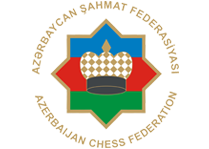Press conference with GM Eugenio Torre

Eugenio Torre, from the Philippines, is the record-holder of participation in the Olympiad – this is his 23rd time! Susan Polgar interviewed him right after he won his first game.
- How do you compare your experience now, as a veteran, with your first appearance in the 1970 Siegen Olympiad?
Many things are different: there is much greater participation now, more teams and the organization is also vastly improved – all is great! I am well acquainted with Baku and Azerbaijan in general, it has traditionally been a chess country. I remember being here back in 1980, at the Baku international tournament which a young Gary Kasparov won.
- That was a long time ago, at the time of the Soviet Union, lots of things have changed…
Definitely! For example, here in Baku there was very little progress at the time, I recall. Now there is incredible development all over the city, it is really remarkable.
- What was your favorite Olympiad? You surely have special memories from one or two out of those 23!
The Nice Olympiad in 1974 was memorable, because it was where I received my Grandmaster title. Manila 1992 as well, since it took place in my home country. There were also other memorable Olympiads, for various reasons; Dubai 1986 was very well organized, also Lucerne 1982 was special; at that time of course you were very young…
- Indeed, I have played “only” 9 Olympiads, the first one only as late as 1988! By the way, a little earlier I interviewed the youngest participant of the Olympiad, a 9-year old girl from Tanzania! What would you advise these young players?
It’s advantageous to start early, not only in chess but also in other fields. I know that in earlier times there was some apprehension to teaching children chess at such an early age, they though they will become “weird”! But now they have discovered that, as a matter of fact, learning chess at an early age will help you overall, not only in chess but also in life. That’s very important. As for chess itself, young players should try to combine study with practice, to play tournaments. They can speed up their study nowadays with the use of computers, of course, but at the same time they should also try to study with a human, to get a different perspective – they should try to combine these two aspects. And of course it is very important to seek and receive as much support as possible.
- The Philippines have produced other top players since your time – one of them, Wesley So, is now playing for the United States. Chess receives a lot of media attention in your country, but what about among ordinary people? I would like to know, because I myself have never been to the Philippines.
Well, maybe some day we should invite you to visit! Chess is very popular in the country, not least thanks to Florencio Campomanes, who served as FIDE president from 1982-1994; he was also responsible for the promotion and popularization of chess in Asia. So, chess is very popular in Philippines, many young children enjoy the game, not least thanks to the fact that it is not an expensive sport. I have always been saying that we have many physical sports but very few mental ones. One should always include sports like chess in his/her program, to keep mentally fit; though of course even for chessplayers it is necessary to be physically fit as well!
- Thank you for your insightful info about the Philippines! Some questions from the audience now. Do you see any new players in your country that can continue along the path of your record participation?
We have many talented players, mainly thanks to a successful youth program that our federation is running, including several age-group tournaments; we try to keep our young players as active as possible. What we are missing, which is also the case in other countries as well, is strong support for the evolution of the young talented player, once he is discovered. More often than not, the young talents depend entirely on the support of their family; only rarely does one receive support from the private or government sectors, and still very limited. In India, for example, private sponsors like banks often undertake support of young players, for 2-3 years minimum, and they renew these contracts if the player is successful. I should let you know, since you touched on this subject, that this may be my last Olympiad as a player; I am thinking on focusing on helping out our young players in the near future as a trainer.
- A rather unusual question for a chess press conference: it is well known that you are a friend of the famous boxer Many Pacquiao; how involved is he with chess, and how strong is he as a player?
He is an average player, but has great love for the game; he uses chess during his preparation for important boxing matches. He is also a Senator now in Philippines. He is a very disciplined person, prepares a lot physically for his matches, so he often uses chess as a form of relaxation; I think it has helped him a lot. You know, we think that boxing is just about physical contact, but in fact there are a lot of mental resources involved. We Philippinos are very happy that he, an 8-times World Champion in various weight categories, has shown great support to chess on various occasions. For example, he has sponsored the Asian Continental Championships, where a lot of Grandmasters participated, and six months ago he supported two FischerRandom tournaments that were held in Bobby Fischer’s memory.
- This brings us to an inevitable question: you spent a lot of time with Bobby, you were one of his closest friends after he retired. What is your favourite memory of Bobby?
Bobby, I liked him so much… Here’s one funny story! Many years ago, he once picked me up at the Los Angeles airport, when I was on my way to Canada for an international tournament. We went to my hotel and then, as was typical of Bobby, we spent many many hours chatting about everything under the sun, until 5am. We then were taken by a hotel mini van to the airport, so I could catch my connecting flight, and the driver was some Philippino American, who immediately recognized me – but not Bobby. We had an extensive conversation, which I kept in English on purpose – so as not to make Bobby uncomfortable, because he wouldn’t be able to understand our local dialect. So this driver greeted me, then started asking about “our” titled players (Cardoso, Balinas), then about Karpov (because I played him several times), Kasparov, Spassky… I was worried throughout that he might ask some insulting question about Bobby, because you know, at the time many media outlets used to publish stuff calling him crazy. Amusingly, but also to my relief, he asked “how is Bobby Fischer doing these days?” – to which I calmly replied “he’s around…”!
And here’s another one! We were in Buenos Aires in 1996, promoting FischerRandom chess. I was supposed to play such a match against the Argentinean champion, Ricardi; unfortunately the match didn’t go through. Anyway, Bobby used to carry with him a prototype of his great invention, the digital chess clock that supports increments; that one was made by an experienced Yugoslav manufacturer. Bobby didn’t want to leave the clock in his hotel room, for fear of it being stolen, so he was carrying it everywhere with him. We used to walk around in the evenings, as late as 1am, and he would always carry the clock with him, despite its weight. One night we were on a stroll, when suddenly two policemen stopped us and asked what was inside his bag; they were really suspicious of us and seemed ready to pull out their weapons even! Bobby had to open the bag and show them, which led to some relief of the tension, but only partial; you see, they were unable to decide whether it was a bomb or not! Bobby explained to them all about the chess clock and we eventually were let go, but overall it was a scary experience!
- It is nice that you mentioned a fact that took the chess world a long time to work out: that the digital clock (and increments) were Bobby Fischer’s invention! Eugenio, thank you very much for joining us. We wish you many more wins, and hope that you change your mind and joins us at the next Olympiad, in Batumi!


























